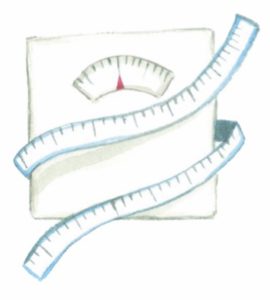
Maintaining a healthy weight is important. Not only does a healthy weight lower your risk of disease, but it also helps you feel good about yourself.
The number on the scale will vary for everyone and depends on several factors, such as age, height, sex, muscle-fat ratio, body fat distribution, and body shape.
There are several methods you can use to determine if you are at a healthy weight. Body Mass Index (BMI) is a common tool that measures your weight in relation to your height. According to the National Institutes of Health (NIH):
- A BMI of less than 18.5 means that a person is underweight.
- A BMI of between 18.5 and 24.9 is ideal.
- A BMI of between 25 and 29.9 is overweight.
- A BMI over 30 indicates obesity.
Other methods include waist-to-hip ratio and body fat percentage. Try using all these methods and combine the results to get the most accurate assessment.
Once you’ve defined what a healthy weight is for you, find an approach to eating that helps you achieve and maintain that weight. Don’t worry if your weight goes up or down a bit from week-to-week or month-to-month; this is normal. However, try to avoid large fluctuations as this can be hard on your body and is not good for your health.
